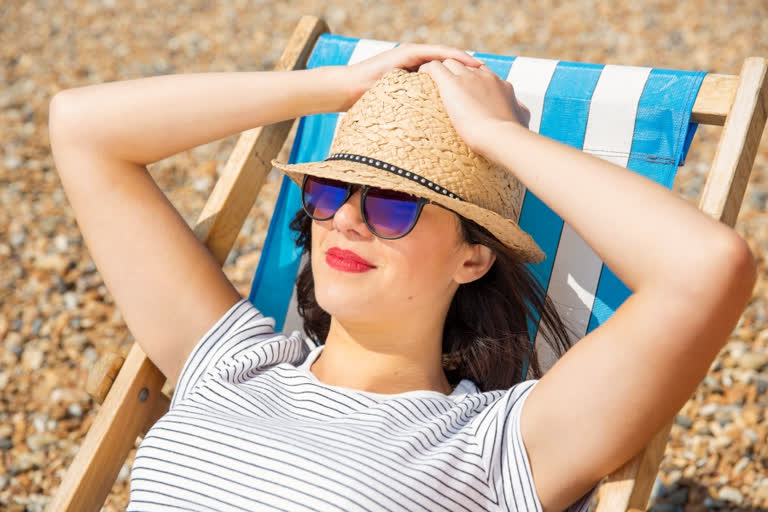Tanning is not only considered unsafe because it comes with the risk of getting a sunburn, which can directly contribute to skin cancer depending on the rate and time of exposure. Tanning is also problematic because the process of tanning involves ultraviolet rays piercing your skin and completely meddling with your DNA!
Tanning exposes the naked skin (when it is not protected by sunscreen or other skin care creams) to both UV-A and UV-B rays. Both these are damaging in multiple ways, but UV-A rays in particular break down the natural collagen present in the skin. Collagen is a component of the skin that aids in strengthening the skin, tightening it and providing the hydration it requires. Once collagen production is affected, the skin will start appearing unhealthy and lose its sheen. Wrinkles and blemishes can also form faster as a result, thereby completely affecting the quality of your skin.
Many people think that tanning actually helps them because it adds more melanin to the skin which can be protective in nature. This is a false and dangerous assumption. Yes, melanin acts as a natural sunscreen for the skin in normal cases; but it is produced in large quantities when tanning takes place on exposure to the sun. However, the striking difference is that melanin is produced after much damage is done to the skin cells. So over-production of melanin can do you only so much good.
Sun tanning for aesthetic reasons is not recommended for anybody in the long run as it can fasten the process of skin ageing. No amount of anti-ageing therapy or use of products can help reverse this after a point. The skin also has the chance of becoming dry and rough. Sun tanning also promotes pigmentation while darkening freckles present on the skin. These effects may not show up immediately, but when they do, there is nothing much one can do at that point.
Experts say that people can enjoy their time basking in the sun; however, they should only do so when the sun is not overhead during scorching summers. They should also make sure to use sunblock or sunscreen of at least SPF 40. Anybody and everybody is not safe exposing themselves to the scorching sun without applying and re-applying sunscreen a few times a day. In fact, people who claim to not have direct exposure to the sun should also do this because harmful UV rays can even pierce through the windshields of cars! Studies have shown that this practice of regularly applying sunscreen helps reduce the risk of skin cancer by a significant margin.
One can also use natural or DIY methods to deal with a stubborn tan - you can rub raw potato peels on the skin or apply aloe vera gel right after exposure. These two methods cool the skin down and also prevent surface damage that may have been caused by harmful sunlight. However, to avoid internal damage, the preventive methods mentioned before may be more useful. After all, as the saying goes - prevention is better than cure.
(IANS)



